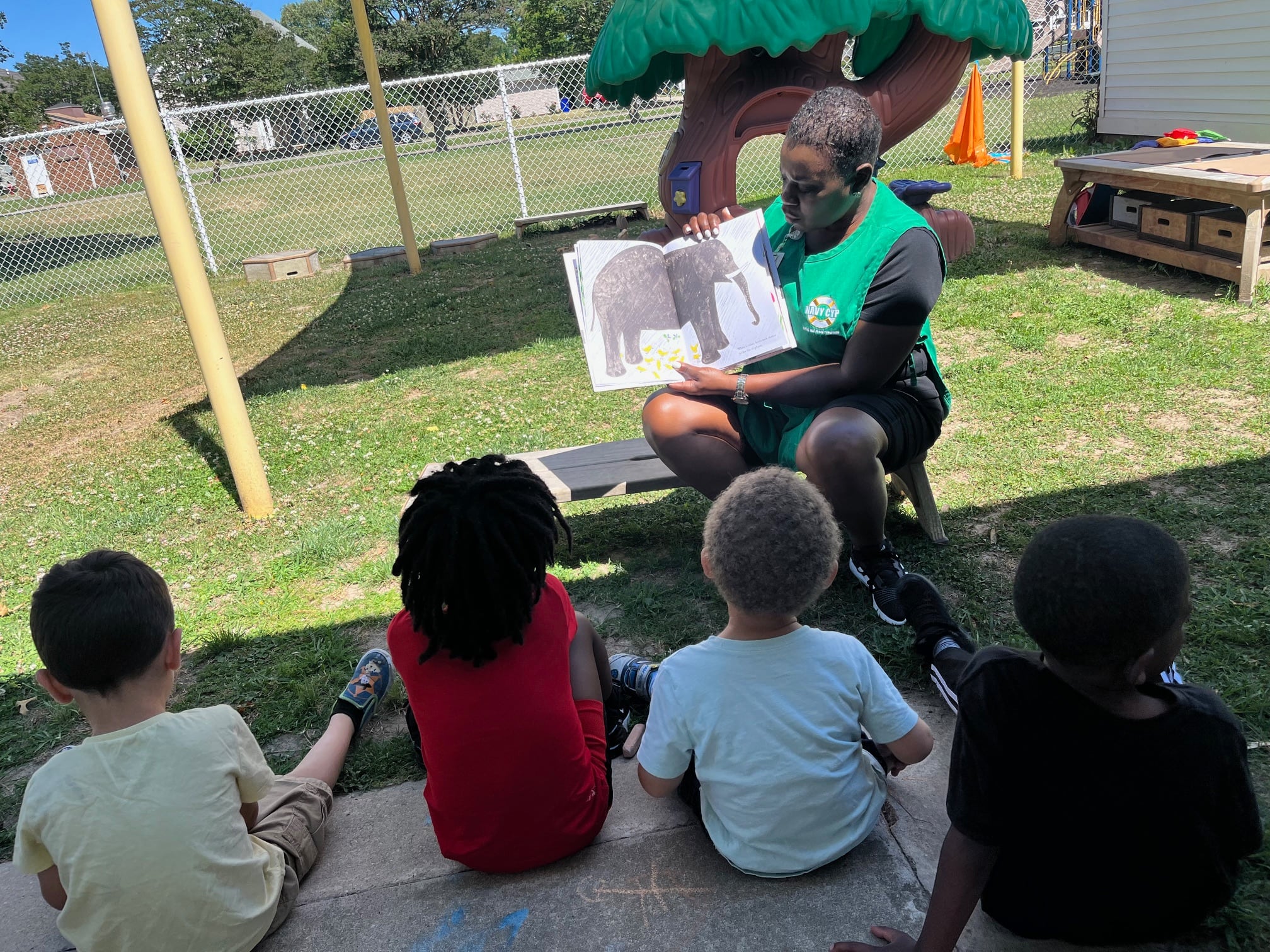A Defense Department pilot program is opening up more than 600 additional child care spaces in three new child care centers for military families in Norfolk, Virginia Beach and the National Capital Region, helping to make a dent in a waiting list that exceeds more than 2,000 in those areas.
Defense officials awarded the contract for the pilot program in March 2024 to the nonprofit Armed Services YMCA. The first child care center was set to open Monday on Walmer Avenue in Norfolk, with 216 slots for children ages 0 to 5 years old.
The second is expected to open later this year in the Shirlington area of Arlington, Virginia, a few minutes away from the Pentagon. Then in spring 2026, a child care center is scheduled to open in Virginia Beach.
Each of the centers will enroll more than 200 children and are exclusively for children of eligible military personnel and DOD civilians.
The pilot was designed to work with a nonprofit partner who would commit to maintaining DOD standards and accepting parent fees using established DOD fee ranges, according to a defense official. This is one of a number of initiatives by the services and DOD to ease a shortage of child care for military families.
“The department launched multiple initiatives to help our families overcome nationwide child care shortages,” said Eryn Wagnon, chief of staff for DOD’s Military Community and Family Policy office, during the Norfolk center’s ribbon cutting May 16. “Paired with the department’s efforts to build and open more on-installation child development centers, these initiatives are helping to rebuild our military.
“Providing this critical resource safeguards our warfighters’ ability to focus on their global mission of reestablishing deterrence.”
Defense officials chose these geographic areas for the pilot program because of the high need. They are among the areas with the longest military child care waitlists. The shortage of child care for military families has long been an issue, in some areas more than others.
There’s a nationwide shortage of child care, but the problem is exacerbated for mobile military families, who very often don’t have alternatives, such as family nearby who can help.
“We’re really hopeful this can become a long-term solution to address the child care issue within the department of defense,” said Dorene Ocamb, chief marketing and development officer for Armed Services YMCA.
As they scouted out locations for the centers, Armed Services YMCA officials sought places convenient for those driving to installations along thoroughfares from concentrations of military housing, Ocamb said.
These centers will have more slots for infants than child development centers usually have, as infant care is more expensive and more difficult to find.
The new Norfolk center has five infant classrooms, four for pre-toddlers, four for toddlers and four for pre-kindergarteners.
RELATED
Families will pay child care fees that are based on the same fee structure used in DOD child development centers, where fees are based on total family income, regardless of the age of the child. For example, the standard weekly fee per child is $54 for a family with an annual total family income of up to $45,000.99. A family with an income of $65,001 to $77,500.99 will pay $88 per week.
Just as DOD subsidizes the cost for parents in its child development centers, DOD also subsidizes the cost of child care in these centers. Officials anticipate that over the five-year contract award period, the operating costs for each facility, once opened, will be about $6 million to $8 million a year, which will be partially offset by those parent fees.
The contract also allows for one-time start-up costs for each program. For the first year, DOD’s costs for the Norfolk location were $6.6 million, a DOD official said.
The center is subject to the same regulations and standards as DOD-operated child development centers, including the priority list for military and DOD civilian families.
Since the centers are not located on federal land, they’re licensed by the state. All employees go through the same screening as any child care worker at a DOD child development center, Ocamb said.
Families follow the same DOD process to sign up for child care, through the MilitaryChildCare.com website.
Interest has been high in the Norfolk center, Ocamb said. When email notices about its 216 available slots went out to parents on the waiting list on the MilitaryChildCare.com site, 394 families expressed interest, she said.
RELATED

In a little over 13 months since the contract was awarded, Armed Services YMCA officials have been able to move from contract signature to actual door opening, Ocamb said.
“In the world of DOD, that’s nothing short of a miracle in terms of the pace of which we were able to find a location, make this commercial property into a fully functioning CDC, hire all the staff that we need, and get families in the door,” she said.
It generally takes five years for child development centers to be built under the military construction process, given the government requirements.
Armed Services YMCA, established in 1861, now has 12 branches and 24 affiliate partners serving nearly 200,000 military members, spouses and children, primarily in the junior enlisted community. These branches have long provided various forms of child care, such as full day care or drop in care, depending on the needs of the military families.
This pilot program is a separate effort.
Karen has covered military families, quality of life and consumer issues for Military Times for more than 30 years, and is co-author of a chapter on media coverage of military families in the book “A Battle Plan for Supporting Military Families.” She previously worked for newspapers in Guam, Norfolk, Jacksonville, Fla., and Athens, Ga.
Read the full article here


